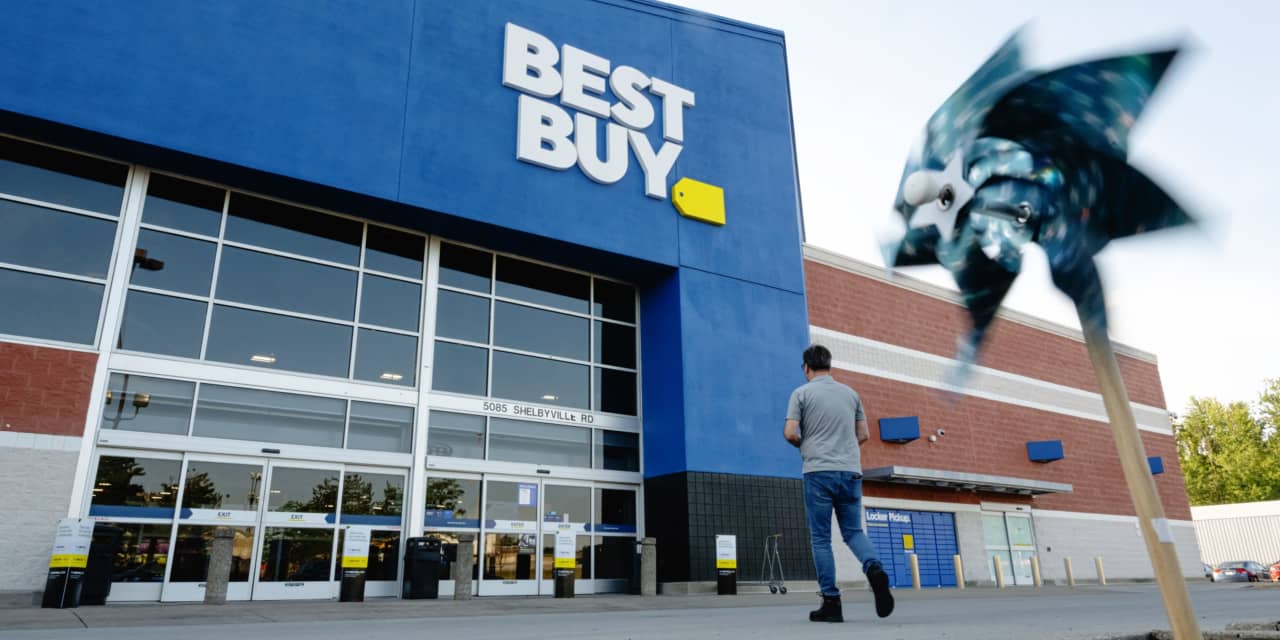For the roughly 40 million Americans with outstanding student loans, October is truly the spookiest month of the year, as student loan repayments are set to resume after more than a three-year hiatus.
The payments may send a chill through consumer spending, Wedbush says, which could have ripple effects across the retail industry.
“With consumers now needing to divert some of their monthly income toward student loan payments, there is risk that this could ‘crowd out’ other spending items,” wrote a group of Wedbush analysts in a note to clients Wednesday.
They added that the payments come as U.S. consumers were feeling pressures from multiple sources, including waning pandemic savings, rising gas prices, and higher levels of credit card debt.
The total amount of student-loan debt is about $1.8 trillion as of the second quarter of 2023, according to data from the Federal Reserve. While that won’t be paid off all at once, the Wedbush analysts estimate that U.S. consumers will make about $120 billion in payments over the course of a year—which could amount to about 2.5% of total discretionary spending.
About 40% of people with student loans said they expected to cut back spending this year, according to Wedbush’s proprietary survey of more than 1,500 consumers. The biggest categories that people were planning on cutting back on include restaurants, apparel, and electronics, the survey found.
That will have broad repercussions on several companies’ revenue growth potential, the analysts wrote—something that Barron’s previously pointed out.
Discretionary retailers who sell high-ticket items, such as furniture and electronics, “are most exposed to spending cuts,” the analysts wrote. Wedbush’s survey indicates consumers with student loans often mentioned they planned to spend less at companies such as
Wayfair
(W),
Best Buy
(BBY), and
Williams-Sonoma’s
(WSM) West Elm.
Within the apparel and footwear space, Wedbush sees higher risk among companies with a larger domestic presence and a a high exposure to shoppers with student loans. Analyst Tom Nikic, who covers apparel and footwear, believes
Carter’s
(CRI),
The RealReal
(REAL),
Allbirds
(BIRD) and
Crocs’
(CROX) HeyDude division are especially susceptible to a spending cut.
Companies with a strong international division, such as
Skechers
(SKX),
Adidas
(ADDYY), and
Farfetch
(FTCH), will be more insulated from the student loan impact, the analysts add. Mass-market retailers who sell non-discretionary products, such as auto parts retailers and some pet stores, may also fare better.
Wedbush isn’t the only research firm to fret over how student loan repayments will impact retailers. Last week, Jefferies downgraded shares of
Nike
(NKE),
Urban Outfitters
(URBN), and
Foot Locker
(FL) over concerns that Americans are planning to spend less on apparel and footwear becuase of the repayments.
“With the resumption of student loan repayments, we believe this could be a catalyst that weighs further on already soft sales at some of our specialty apparel coverage,” analyst Corey Tarlowe wrote at the time.
Write to Sabrina Escobar at sabrina.escobar@barrons.com
Read the full article here













Leave a Reply